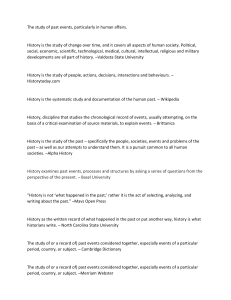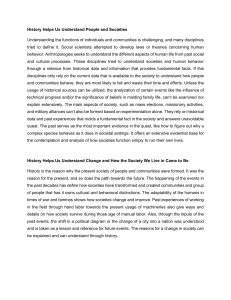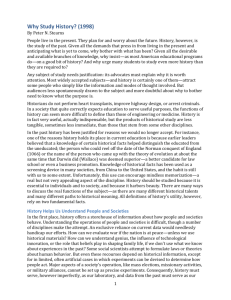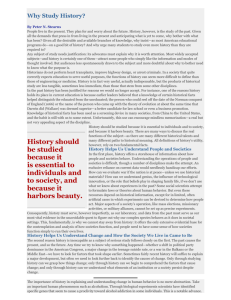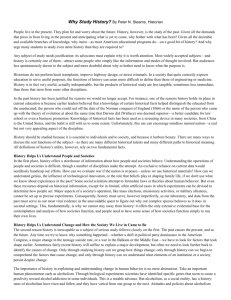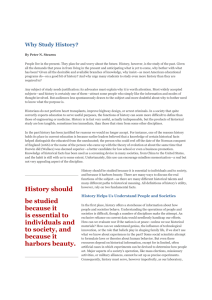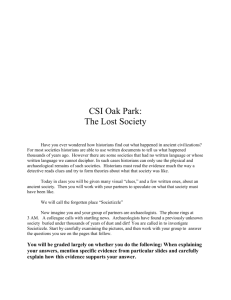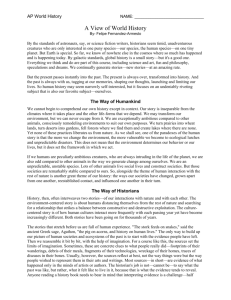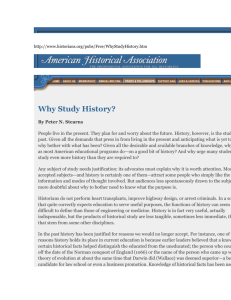1 - History Helps Us Understand People and Societies
advertisement
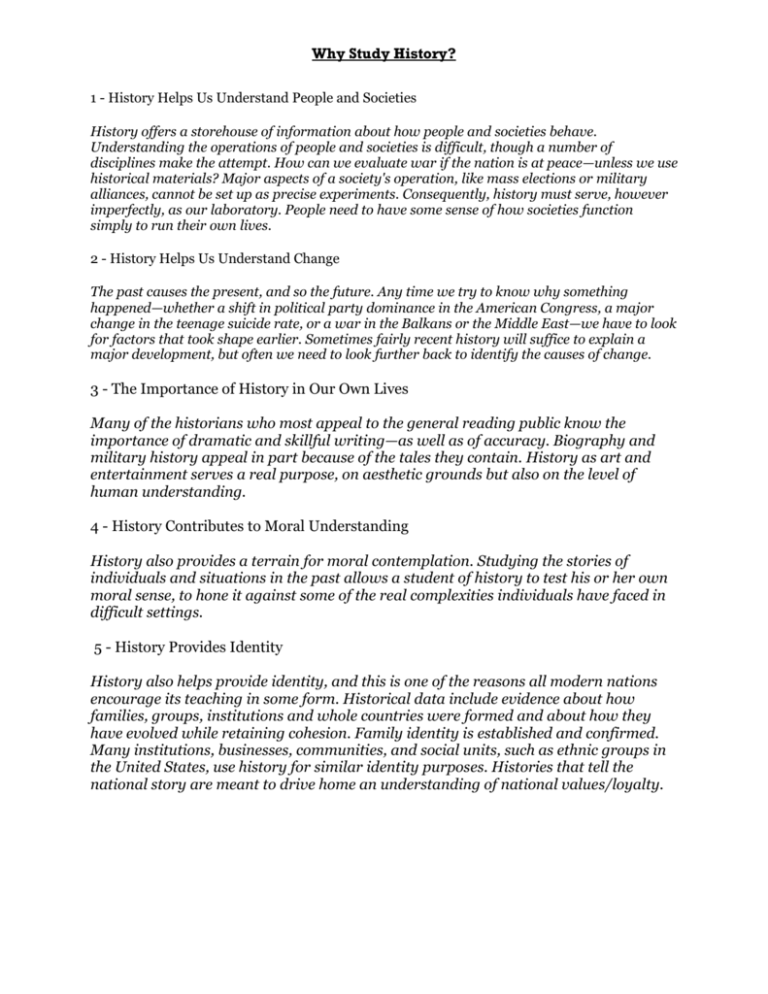
Why Study History? 1 - History Helps Us Understand People and Societies History offers a storehouse of information about how people and societies behave. Understanding the operations of people and societies is difficult, though a number of disciplines make the attempt. How can we evaluate war if the nation is at peace—unless we use historical materials? Major aspects of a society's operation, like mass elections or military alliances, cannot be set up as precise experiments. Consequently, history must serve, however imperfectly, as our laboratory. People need to have some sense of how societies function simply to run their own lives. 2 - History Helps Us Understand Change The past causes the present, and so the future. Any time we try to know why something happened—whether a shift in political party dominance in the American Congress, a major change in the teenage suicide rate, or a war in the Balkans or the Middle East—we have to look for factors that took shape earlier. Sometimes fairly recent history will suffice to explain a major development, but often we need to look further back to identify the causes of change. 3 - The Importance of History in Our Own Lives Many of the historians who most appeal to the general reading public know the importance of dramatic and skillful writing—as well as of accuracy. Biography and military history appeal in part because of the tales they contain. History as art and entertainment serves a real purpose, on aesthetic grounds but also on the level of human understanding. 4 - History Contributes to Moral Understanding History also provides a terrain for moral contemplation. Studying the stories of individuals and situations in the past allows a student of history to test his or her own moral sense, to hone it against some of the real complexities individuals have faced in difficult settings. 5 - History Provides Identity History also helps provide identity, and this is one of the reasons all modern nations encourage its teaching in some form. Historical data include evidence about how families, groups, institutions and whole countries were formed and about how they have evolved while retaining cohesion. Family identity is established and confirmed. Many institutions, businesses, communities, and social units, such as ethnic groups in the United States, use history for similar identity purposes. Histories that tell the national story are meant to drive home an understanding of national values/loyalty. 6 - Studying History Is Essential for Good Citizenship This is the most common justification for the place of history in school curricula. History that lays the foundation for genuine citizenship returns, in one sense, to the essential uses of the study of the past. It offers evidence also about how nations have interacted with other societies, providing international and comparative perspectives essential for responsible citizenship. More important, studying history encourages habits of mind that are vital for responsible public behavior, whether as a leader, a voter, a petitioner, or a simple observer. 7 - History Is Useful in the World of Work History’s study helps create good businesspeople, professionals, and political leaders. Most people who study history do not become professional historians. Students of history find their experience directly relevant to jobs in a variety of careers as well as to further study in fields like law and public administration. Employers often deliberately seek students with the kinds of capacities historical study promotes. They develop research skills, the ability to find and evaluate sources of information, and the means to identify and evaluate diverse interpretations. Work in history also improves basic writing and speaking skills. There is no denying that in our society many people who are drawn to historical study worry about relevance. In our changing economy, there is concern about job futures in most fields. Historical training applies directly to many careers and can clearly help us in our working lives. Adapted from: Stearns, Peter N. Why Study History? American Historical Association (1998). 11 July 2008. < http://www.historians.org/pubs/free/WhyStudyHistory.htm>
